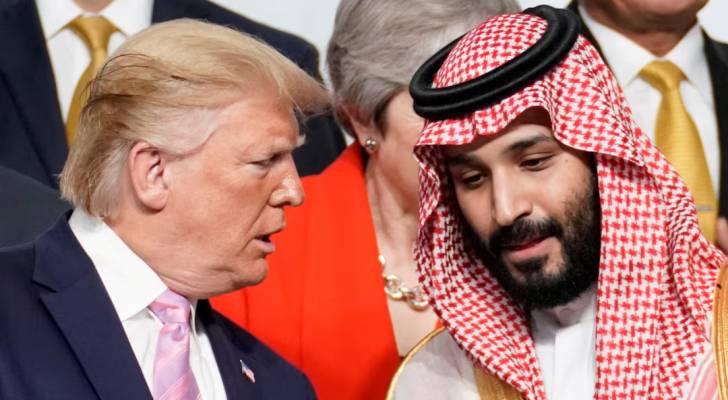Trump’s Middle East Summit to Include Palestinian, Lebanese, Syrian Leaders: Sources
A high-stakes meeting scheduled for Tuesday, May 13, 2025, between US President Donald Trump and Saudi Crown Prince Mohammed bin Salman is set to include Palestinian Authority President Mahmoud Abbas, Lebanese President Joseph Aoun, and Syria’s leader, Ahmed al-Sharaa, according to Arabic media reports.
The summit, taking place in Riyadh at the start of Trump’s visit to Saudi Arabia, Qatar, and the United Arab Emirates from May 13 to 16, marks a significant moment in Middle East diplomacy as regional leaders gather to address pressing issues, including the 'Israeli' genocide on Gaza and Saudi-'Israeli' normalization.
Citing an anonymous source, the Palestinian newspaper Al-Quds reported that Crown Prince bin Salman is hopeful that Trump will agree to Saudi Arabia’s longstanding condition of establishing a Palestinian state as a prerequisite for normalizing ties with 'Israel'.
This expectation contrasts with Trump’s February 2025 claim that Saudi Arabia had dropped its demand for Palestinian statehood in exchange for normalization, a statement that prompted a swift denial from Riyadh.
The inclusion of Abbas, Aoun, and al-Sharaa in the meeting, at bin Salman’s request, suggests Saudi Arabia’s intent to broaden the dialogue and reinforce its diplomatic influence in the region.
The Riyadh summit comes amid heightened tensions and complex regional dynamics. Trump has reportedly expressed frustration over the failure to secure a ceasefire in Gaza, where 19 months of genocide have left the enclave devastated.
The Palestinian Authority, led by Abbas, had previously threatened to sever ties with Trump following his controversial February proposal to take control of Gaza, displace its residents, and redevelop the area as a coastal resort.
This plan was met with opposition from the PA and rival proposals, such as an Egyptian initiative to transfer postwar Gaza governance to the PA, which 'Israeli' Prime Minister Benjamin Netanyahu has firmly rejected.
Speculation about US recognition of a Palestinian state has also surfaced, with reports on Saturday suggesting Trump might announce such a move during his trip. However, US Ambassador to 'Israel' Mike Huckabee dismissed these claims as “nonsense,” indicating that no such policy shift is imminent.
Meanwhile, Trump has predicted that Saudi-'Israeli' normalization could occur “very quickly,” though he has reportedly deprioritized this goal in favor of advancing Saudi Arabia’s civilian nuclear program without tying it to normalization with 'Israel'.
The presence of Lebanese President Joseph Aoun and Syria’s Ahmed al-Sharaa underscores the broader regional implications of the summit. Aoun, who has been working to mend ties with Saudi Arabia after years of strain due to Iran’s influence in Lebanon, and al-Sharaa, who assumed power following the ouster of Bashar al-Assad in December 2024, represent key players in navigating the region’s shifting alliances.
Their participation signals Saudi Arabia’s ambition to mediate between Washington and emerging Arab leadership to address issues like Gaza’s reconstruction, Iran’s nuclear ambitions, and regional stability.
As Trump embarks on his first major foreign trip of his second term, the Riyadh meeting is poised to shape the contours of US engagement in the Middle East.
While the prospect of Saudi-'Israeli' normalization remains a focal point, the inclusion of Palestinian, Lebanese, and Syrian leaders suggests a broader agenda aimed at addressing longstanding conflicts and fostering economic cooperation.
However, with competing visions for Gaza’s future and persistent distrust among stakeholders, the path to meaningful progress remains fraught with challenges.




